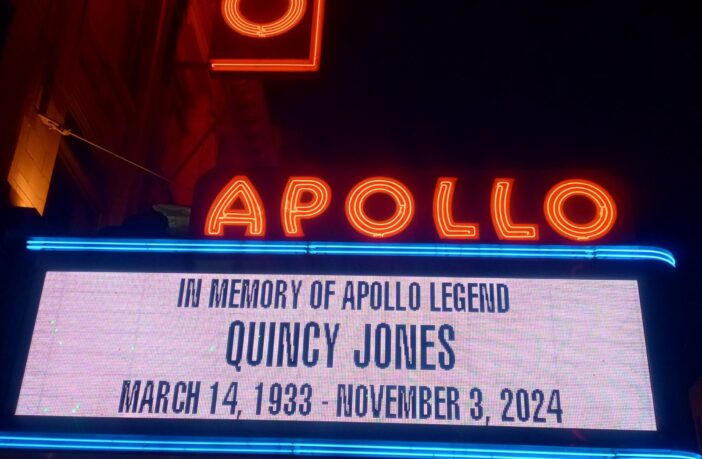In order to earn the right to be considered a legend, one must set oneself apart from others by being the best and/or being uniquely different. Having many successes spanning several decades, and mastering various aspects of the entertainment industry along the way, Quincy Jones definitely earned this classification throughout his distinguished career before transitioning to the ancestral realm on Nov. 3 at 91 years old.
He had much success producing music, whether crafting music tracks for legends Frank Sinatra and Count Basie, as a solo artist during the 1950s and 1960s, or composing the scores for various popular television shows and collaborating with fellow jazz musicians.
“He was so excited when we met,” recalled Abiodun Oyewole, founding member of The Last Posts, about their only encounter, at Tavern On The Green with actor Malik Yoba during the late 1990s. “He said ‘You guys are the original rappers, you guys laid down the foundation,’ and started hugging me. There’s no musical composer that could touch him. He was at the very top of the music world, producing scores for movies and TV shows. He had a genius to put music together in a way that people appreciated what they were watching.”
In the 1970s and 1980s, Jones created classic soundscapes for TV shows like “Sanford & Son,” as well as the monumental 1977 mini-series “Roots,” and worked with legendary singers like Chaka Khan and Michael Jackson, arranging music for three of Jackson’s albums, including “Off The Wall” (1979), and “Thriller” (1982) — one of the best-selling album of all time at 37 million copies in the U.S., and over 70 million globally, according to the RIAA. (Their third album collaboration was for “Bad” in 1987.) He also orchestrated the track for 1985’s “We Are The World (USA For Africa),” which sold over 20 million copies worldwide. Quincy won 28 Grammys and numerous other awards.
RELATED: Quincy Jones, peerless producer, composer, and connoisseur of sound, passes at 91
Jones also enjoyed success in the literary world, establishing the front-runner Vibe magazine in 1993, which became one of the foremost magazines which documented hip-hop as it blossomed globally.
“Quincy was extremely talented, a musical genius, one of the best musicians, arrangers, composers, to ever do it,” said TaharQa Aleem, who along with his twin brother Tunde-Ra, were members of Jimi Hendrix’s Band Of Gypsies, and recalled meeting Quincy and Michael Jackson in Midtown Manhattan during the 1990s. “He was very creative and one of the best to ever do it. His career overlapped several generations is testimony to his impact.”
In 1990, Jones was behind the scenes in Hollywood, serving as executive producer of such popular television series as “The Fresh Prince Of Bel Air”, “The Whoopi Goldberg Show,” and “In The House,” among several others.
I was introduced to Mr. Quincy Jones during the summer of 1997 by Mr. Steve Rifkind when I was in A&R at Loud Records, whose office was in the same building as Vibe magazine at the time. I asked him, “With all of your successes, how do you manage to stay hungry and remain on top for so long?” He replied: “Never be satisfied with your last accomplishment.” That’s a jewel which I’ve shared with only a few, until now.
“I always appreciated his work because it’s always been on a super scale. The world’s anthem is ‘We Are The World,’” Abiodun added. “He will never really die, because when you produce the volume of work he has, he will never die. His work gives him immortality, and I’m grateful to be here on the planet and experience the work that he has done.”
Like this:
Like Loading…



